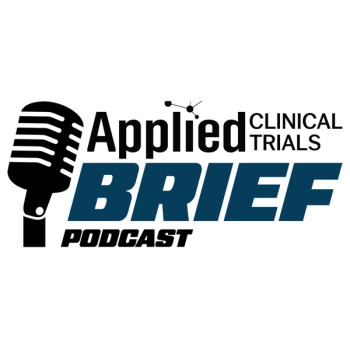
MCRC Paves Path to Expanded Phase I Clinical Studies
DALLAS, TEXAS-Harnessing more than 30 years of experience in multi-phase clinical studies, a team of top doctors and a loyal patient base, Metroplex Clinical Research Center (MCRC) in Dallas is retooling its Phase I services and relocating its facilities to meet changing industry dynamics.
"We've aggressively gone after and marketed Phase I studies, and we've been able to staff our center accordingly to meet that niche," said Chad Fragle, CEO. "Consequently, we've seen tremendous growth in the number of studies and the number of participants needed, and we've been able to meet enrollment goals. It can be accomplished when you have 10 physicians and two nurse practitioners. Last year, we generated over 30,000 patient visits."
Located on the campus of UT Southwestern at St. Paul University Hospital, MCRC is a multi-specialty clinical research site headed by rheumatologists Dr. Roy M. Fleischmann and Dr. Stanley B. Cohen. Drs. Fleischmann and Cohen are well-known lecturers and authors on the subjects of research and rheumatic disease treatments. They also serve as advisors to major pharmaceutical companies and sit on several boards of directors.
"Good customer service is the cornerstone of our success," Fragle explained. "For example, we have some patients who have been coming to Drs. Fleischmann and Cohen for 30 years and who have participated in multiple studies offered at the site."
The MCRC complex includes a full-service X-ray department with bone density testing, an onsite CLIA-certified laboratory, an onsite infusion unit and overnight accommodations in the Phase I facility. This summer, MCRC will relocate to a larger space along the North Central Expressway corridor in Dallas.
"The majority of the increase in space will go toward the clinical research center, namely, Phase I," Fragle explained, adding that the new building is steps away from a DART Light Rail station, which will permit easier access for patients with transportation challenges.
To augment its clinical team, which includes 10 medical doctors and two nurse practitioners, MCRC has designated a Phase I team comprising critical care professionals with extensive experience in clinical research. With two staff members dedicated to study enrollment, there is a significant operational focus on patient recruitment and retention.
Asked why MCRC has expanded its Phase I services, Fragle said: "We're one of the few centers in the country that can service that population, we have a track record of success, and the physicians are keenly interested in and equipped for the clinical challenges of Phase I studies."
Phase I studies represent a critical starting point in the drug development process. During a Phase I study, doctors test an investigational medication or therapy in a small group of people to evaluate its safety, determine a safe dosage range and identify side effects.
Drs. Cohen and Fleischmann said early phase research is critical for determining the absorption and metabolism of new investigational therapies as well as establishing their potential future dose.
MCRC is currently conducting studies in multiple disease indications, including rheumatoid arthritis, osteoarthritis, lupus nephritis, scleroderma and ankylosing spondylitis. For more information about research opportunities at MCRC, contact Chip Pemberton at (214) 424-0407 or Neha Cervantes at (214) 424-0405. Further details about MCRC are available at
Newsletter
Stay current in clinical research with Applied Clinical Trials, providing expert insights, regulatory updates, and practical strategies for successful clinical trial design and execution.




